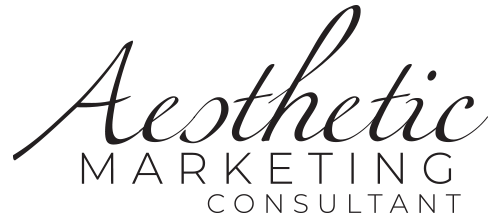“A brand is what a business does. Reputation is what people remember.” – Ted Rubin.
As individuals, we may not care about how other people view us. Reality is, it has no bearing on most of us, especially when these people are unknown to us or have no deep personal ties with us.
We wish, though, that we could say the same for a business; the above is unlikely to happen in the business sphere.
A business’s reputation is the backbone of its potential for growth and expansion. With an inconsistent reputation, there will be a contradictory impact on the local market; and with an unpleasant reputation, there will exist no market for that business. Plastic surgery reputation management demands serious and dedicated attention from your aesthetic practice – here’s everything to consider in your plastic surgery reputation management plan.

REPUTATION MANAGEMENT
SEO MANAGEMENT
In the digital world, it is common for search engines to associate websites that land on the first page as reputable and reliable. Through plastic surgery SEO services, you can get your practice to rank high in search results such as Google by understanding what keywords best fit and describe your plastic surgery practice. As you pick and filter out which keywords to use, consider which products and procedures are in demand in your local market. A significant advantage of managing your practice’s SEO is that when it lands on the first page of a search result, it will automatically generate more visibility, and hence, more traffic.
MEDICAL REVIEW SYSTEM
It is likely for your practice to be maintaining blogs and social media accounts, and there is nothing wrong with that. However, everything that you choose to post and share on the web will stay there permanently – this includes seemingly harmful photos and video, opinion-based blogs, and even tweets. Besides being extra conscious about the things you post online, it is equally beneficial to review your posted content now and then. Your practice can address this by monitoring the changes and demands of the local market so you can likewise adjust or revise any content you have posted in the past accordingly.
Let's Talk!
Get your free 30-minute consultation with an Aesthetic Marketing Consultant
Schedule A ConsultationHIPAA COMPLIANCE
Email Encryption on Unnecessary Messages
Email encryption is when an email is sent with an encryption, may it be intentional or by accident. This can be resolved, and it is advised that your practice seeks the help of an email provider that is HIPAA-compliant. Doing so will make it easier to sort out emails and tag which messages should be encrypted and not.
Mobile Phones for Business
It is inappropriate, per HIPAA compliance, to use mobile phones to communicate with patients. It may seem harmless, but some messages may contain private and personal information and could be easily accessed by anyone. To eliminate the risk of unsecured information from patients, a secure chat app, like Halo Health, that is HIPAA-compliant, could be used for encryption.
Unpermitted Media
It is commonly seen how a handful of aesthetic practices document aesthetic procedures for plastic surgery advertisement purposes. However, it goes against HIPAA Compliance when documentation is taken without the patient’s consent or even worse when it is shared over the web without them knowing. One solution for this is to have your practice use an app that secures documentation. Furthermore, it is necessary always to make sure that patients are unidentifiable when intending to share their results over the web.
Breach of Information
Secured information can be exposed by accident. Especially when these are stored in devices that we frequently use, human error can still happen. Being HIPAA-compliant means your practice uses pin-lock features and password-protect apps to avoid any unintentional violations.
Unsecured Data Collection
Each patient is profiled differently, and it is a norm to store medical information using electronic devices. However, your practice should consider which web intake forms are HIPAA-compliant.
Shared Logins
Shared logins are sadly a typical routine to some practices – but it is a bad habit. To comply with HIPAA requirements, your practice should make an effort to assign logins and passwords that are secured individually.
Employee Compliance
Practices often fail to orient their employees about being HIPAA-compliant. With the increased risk of mishandling sensitive information, you should train and test employees to follow the protocols and conduct regular performance assessments.
Lost Devices
Lost devices are common to all people. HIPAA advises for practices to impose a set of rules for usage of devices. You can keep track of your devices by making an inventory and safekeeping these devices when not in use.
REVIEWS AND FEEDBACK MONITORING SYSTEM
Reviews and feedback are essential to any type of business, especially in the aesthetic industry. Because your practice deals with procedures related to one’s physical appearance, you must keep track of any reaction or criticisms towards your plastic surgery practice. As you notice any adverse feedback, you must address it immediately and provide the best customer care necessary. It will vary from one patient to another, and each should be spoken according to their concerns, not by using a generic copy-paste message. Similarly, positive feedback should be acknowledged too. They are relevant in keeping a solid base of patients for your practice.
PLASTIC SURGERY REPUTATION MANAGEMENT IN ACTION
As you figure out the best system for your plastic surgery reputation management, ask yourself: “How do I want to be viewed by our local market?” If this question leaves you struggling a bit to find the perfect answer, reach out to an aesthetic practice marketing consultant to lead the way.
It is not as easy as saying a “good reputation” – that is too vague. With your aesthetic marketing consultant’s help, you can work together to reflect on your plastic surgery practice’s value, ideals, culture, and even your vision and mission, and align these things with how you want your reputation to be perceived. It must be specific and clear, precise, and accurate. When you can already pinpoint these things, it will be easier for you and your aesthetic consultant to monitor your plastic surgery reputation.
Bear this in mind: “Reputation is what people remember.”

